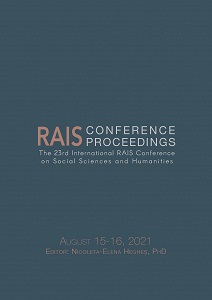Positioning Prospective Teachers’ Awareness of Diversity: A Critical Literacy Context
Positioning Prospective Teachers’ Awareness of Diversity: A Critical Literacy Context
Author(s): Lorenzo Cherubini
Subject(s): School education, Inclusive Education / Inclusion
Published by: Scientia Moralitas Research Institute
Keywords: critical literacy; prospective teacher development
Summary/Abstract: This presentation discusses the third and final component of a multi-dimensional study using a distinct learner-centred Problem-Based Learning (PBL) model that invites prospective teachers to collaborate in small groups on inquiry-driven projects that deepen their appreciation of critical literacy. The literature attests to the success of PBL environments where student participation in peer-to-peer discussions furthers more sophisticated capacities to actively process new information. The PBL model is a core component of a mandatory third-year undergraduate concurrent Education course of study for all students enrolled in the Intermediate/Senior program (qualifications to teach grades 7 to 12). Each peer-group, consisting of four to five students, scripts and records a video presentation that accounts for the implications of a case-based dilemma. The PBL model is meant to promote prospective teachers’ proficiency to meaningfully translate their understanding of the inquiry-problem as it applies to a broad range of topics and competencies. Consistent with the first two components of the larger study, the PBL instructional approach aims to scaffold prospective teachers’ awareness of certain concepts in the broader context of critical literacy. Consequently, the critical literacy framework represents the theoretical basis that positions prospective teachers to be increasingly aware of the implications of ethnic, religious, and socio-economic diversity on case-based teachers and students.
Book: Proceedings of the 23rd International RAIS Conference on Social Sciences and Humanities
- Page Range: 9-12
- Page Count: 4
- Publication Year: 2021
- Language: English
- Content File-PDF

